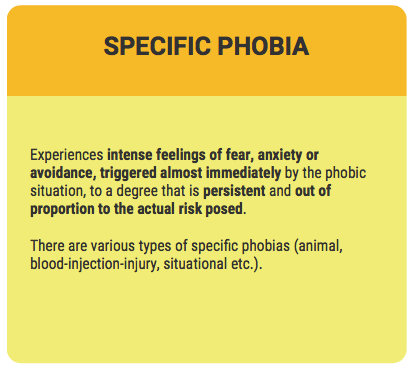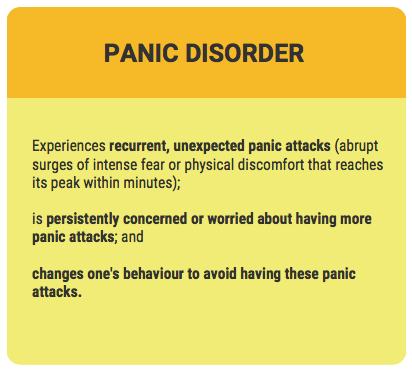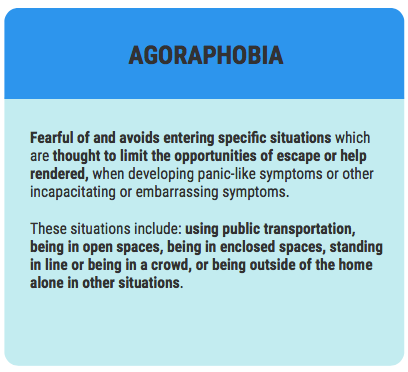It is normal to feel anxious about an important interview, exams or a major event. When does this anxiety become a disorder? It is when anxiety becomes
excessive, blown out-of-proportion and the
intense worry impairs a person’s ability to perform daily tasks.
Individuals with anxiety disorders typically experience restlessness, irritability, problems with sleep and concentration. They may also avoid particular situations which cause intense distress or discomfort. In addition, they may seek medical attention frequently, as physical symptoms of anxiety disorders (e.g. heart palpitations, breathing difficulties, feeling faint or dizzy, and sweatiness) are often mistaken for health problems.
Type of anxiety disorders
Specifically, anxiety disorders can be classified into the following:






Getting help
If you or someone you know is having anxiety issues, or are feeling unsure, seek professional help by contacting CHAT for a
mental health check.
Practical tips for managing anxiety
- Learn relaxation techniques.
Release the tension in your muscles with the muscle relaxation technique; calm yourself down during times of anxiety or panic using the applied relaxation technique; or learn to sit with your feelings of distress using the mindfulness meditations. Search them up on YouTube! - Schedule time to worry.
Set aside 30 minutes each day just to worry. If other worrisome thoughts creep in at any other times, put them aside by telling yourself you have a scheduled time to worry.
The goal is to worry only during your scheduled 30 minutes each day! Then, write down your distressing thoughts and worries. Look at each item and think:
Did they happen? If they did, how did you get around them? Identify your coping skills and work to strengthen them!